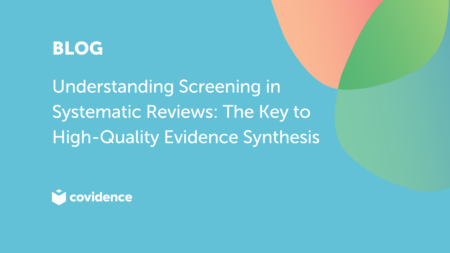Registering the review protocol is critical to promote transparency, reduce bias and prevent research duplication. Protocol registration should be prospective.
There are several important reasons that review teams register their review protocols including:
- Transparency and reproducibility: Transparency shows others that this work is in progress. Risk of bias and selective reporting are minimised when research questions, objectives, eligibility criteria, and planned analyses are clearly documented. Protocol registration allows other review teams to replicate and evaluate the methodology against best practices. Publication of protocols reduces duplication.
- Minimisation of arbitrary decisions and methodological rigour: Registering the review protocol is a key step in minimising arbitrary decisions. The process of registering the protocol requires careful consideration by the research team on ensuring the research question is well defined and specific and developing the search strategy to identify relevant studies.
- Reduction of research wastage/duplication: Protocol registration helps prevent duplication of effort and research wastage.
- Publication and funding requirement: The prospective registration of a review protocol is often a requirement of some funding agencies and journals, or is strongly recommended.
The PRISMA Reporting Standard and the Cochrane Handbook list completing a protocol as one of the important review steps
https://training.cochrane.org/handbook/current/chapter-01#section-1-5
https://www.prisma-statement.org/prisma-2020-checklist
https://www.bmj.com/content/bmj/372/bmj.n71.full.pdf
Where can you register a systematic review protocol?
Several international networks are available to register systematic reviews:
- PROSPERO: the first prospective register of systematic reviews with a focus in healthcare, public health, crime, justice, social welfare, and education. Systematic reviews, rapid reviews, and umbrella reviews can be registered in PROSPERO’s database. Scoping reviews are not registered on this platform and students are not able to register their reviews here.
- INPLASY: accepts a wider variety of protocols including scoping reviews. Retrospective protocol registration is possible but is strongly discouraged. Protocols are usually published within 48 hours.
- Open Science Framework (OSF): contains pre-published manuscripts and pioneering research protocols. Pre-registration regarding the project is required to capture key information that is permanently stamped with a DOI. Information can be made private for up to four years. Updates can be made throughout this time. A central repository can be created to collaborate with other researchers on the team.
- Research Registry: includes all types of research studies including systematic reviews. Allows prospective and retrospective registrations.
Cochrane review protocols are automatically registered and uploaded to PROSPERO when they are published https://training.cochrane.org/handbook/current/chapter-ii#section-ii-1-2 .
Campbell Collaboration is another platform that houses a list of registered titles of systematic reviews. These reviews are published once they reach the protocol stage. The Joanna Briggs Institute (JBI) also registers protocols. Protocols that are listed on their site may already be published or in preparation for publication within six months from the initial registration.
Useful resources


